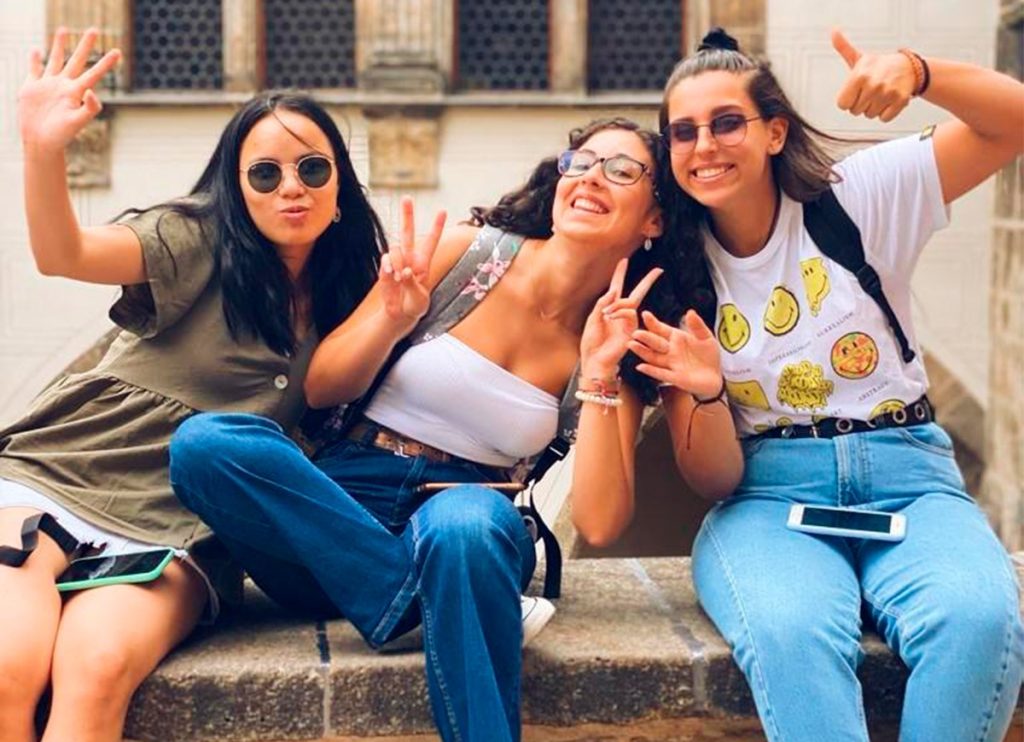We love travelling and helping students from all over Spain travel abroad to study in English, but above all, to become #changemakers. It’s not just about organising study trips, but about understanding our journey through the world and the impact we have on it.
Traveling leaves a mark on the person who travels and on the destination they reach. We want that mark to be as positive as possible. What about you?
How can we travel sustainably and create a positive impact?
Our goal is to help each Plan Zero student acquire the most sustainable lifestyle and travel habits possible. We recently published an article on how to prepare a sustainable, zero waste suitcase, the first step when we are starting our journey.
But we don’t just want to reduce our negative impact, we also want to make an effort to make each trip have a positive impact. For this reason, today we are starting a series of articles with tips for sustainable travel. Does this sound familiar to you? Keep reading…
Sustainable travel: basic rules
The three basic rules for sustainable travel are:
- Caring for the environment: through the 3Rs: reduce, reuse, recycle.
- Protect the cultural and natural heritage of the destination: respect historic buildings or protect native flora and fauna species.
- Provide social and economic benefits to local communities: promoting local trade, helping local organizations working on programs with a positive impact on the community, etc.

Studying abroad with a positive impact on destinations
Today we want to focus on a basic tip for sustainable travel: leaving destinations better than we found them. Tips that are useful for our daily life in our environment, but that we should not forget when we travel.
Step 1. Don’t leave the destination worse than you found it.
It may seem like a simple tip, but our daily habits can leave a trace in the form of rubbish wherever we go. For this reason, routines such as saying no to plastics and single-use products or separating waste for proper recycling can be applied in our daily lives, and also on our travels.
We know that plastics, especially disposable plastics, are a huge environmental problem. The Garbage Island, also known as the plastic continent, is an example of the damage that humans have done to the ecosystem through their consumption habits.
Sometimes we can cause damage unintentionally or even with well-intentioned motivation. An example of this is feeding the local fauna or taking home something from nature as a souvenir: shells from the beach, volcanic rocks, flowers… It is best not to intervene in ecosystems so as not to cause unexpected damage.

Step 2. Leave the destination better than you found it.
The fundamental path to sustainable travel begins by not creating a negative impact, that is, not leaving the destination worse than when you found it. But we can go further and try to leave a positive mark wherever we go.
For this reason, at Plan Zero we want to promote habits and activities aimed at improving the natural environment and raising awareness about the footprint we leave behind. Which one would you like to start with?
- Always carry a bag to collect waste.
Getting ready to go out? Don’t forget to put a bag in your purse, fanny pack or backpack to collect everything you find that shouldn’t be there: cigarette butts, papers, etc. Then you can throw it in a bin or, if possible, separate it in the different recycling containers. It doesn’t have to be a special day, introducing this habit into our daily life will allow us to keep our surroundings cleaner almost without realizing it, even on the way from home to the supermarket.
When travelling abroad, there are a lot of activities to do. Reducing the amount of waste we take and collecting all the waste we may have produced on any excursion is essential, but we can also take advantage of the opportunity to clean up beyond our own waste. Try to always leave the place cleaner than it was when you arrived!
- Organize waste collection events.
Activities organized during study abroad trips can be the perfect opportunity to raise awareness. As we have mentioned, every moment is an opportunity to leave our surroundings cleaner. But also, organizing an exclusive cleaning event can be a great idea to introduce this habit, and that is what we do at Plan Zero.
Beach, park, riverbed clean-up, etc. are among our favorite planned activities for group trips with a monitor. But we also encourage each student to find their own time and organize their pick-up event with their group of friends. Can we help you organize it?

- Plogging. Playing sports and picking up trash.
If you’re into sports, this could also be the perfect time to leave your destination better than you found it. Plogging is an activity that combines running and picking up litter. It started in Sweden and has quickly spread around the world due to the climate emergency and growing concerns about pollution.
Its proponents also claim that this activity improves physical activity. Picking up the rubbish you find forces you to perform arm and leg movements that enrich the workout. Are you up for it?
Traveling leaves a mark
As you can see, reducing our negative impact is just as important as having a deeper perspective that helps us generate a positive impact. And every moment is an opportunity! We just have to educate our gaze with sustainability in mind.
If you want to travel abroad to study, at Plan Zero we will help you to ensure that this experience leaves a positive mark on you and the destination you choose. Find out more on our website. Ready?





